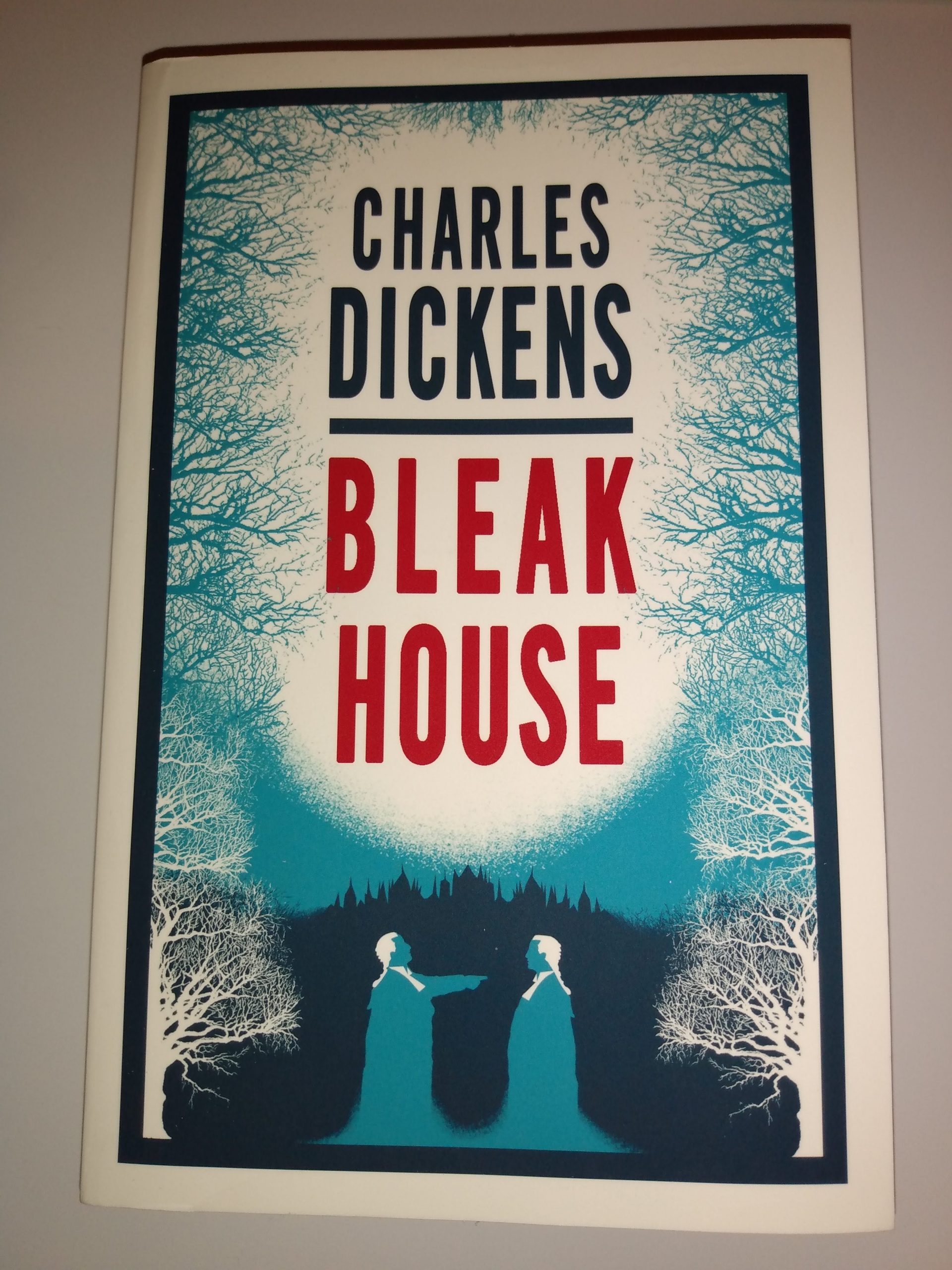Bleak House, by Charles Dickens
I approached this book as one might approach an extremely long walk: braced for a test of endurance, but also hoping (not unreasonably) that it might be quite enjoyable. It is widely regarded as being one of the best novels ever written, which gave me some hope. But the sheer size of it was a tad daunting even to me; at around 800 pages it is very chunky, not to mention the writing is miniscule. Also, the copy I picked up from the library was absolutely pristine and smelt new - suggesting I was the first person to dare to borrow it - which didn't bode well. And to top it off, it's literally called bleak. But I am a hardcore bookworm, (and Bleak House is on a 'suggested reading' list I have been given in preparation for university...) and so I embarked on my quest to read it.

Bleak House follows the escapades of a large number of characters in Victorian London, all of whom are inextricably linked to, at the behest of, and trapped in the legal system. The whole narrative is underpinned by an ongoing court case called Jarndyce and Jarndyce which concerns some wills made generations ago; the case seemingly can never be closed, and a number of poor and disempowered characters are sucked in to the case and driven to death and despair (while the wealthy lawyers, of course, benefit greatly from it all). At times it had the feel of a social satire criticising the legal system of Victorian England, because everything linked inevitably back to this interminable court case - but the social commentary was multi-layered, extending to criticisms of the class divide and even the gender divide.
I think my favourite thing about this book was its characters. There was just such a range! Dickens captures a very wide slice of Victorian society, from Lord and Lady Dedlock who live in a mansion filled with gilt-framed portraits of their ancestors, all the way down to little orphan Jo who sweeps the pavements for small change and spends the whole novel being told to 'move on' by various upper class people.
Many of the characters were stereotyped and flat, creating the satire of different classes, and many of them also were extremely funny. One comedy character I especially liked was Grandfather Smallweed, so frail in his old age that he always had to be carried around in his chair by several other characters, but with a fiery temperament and an amusing habit of saying the word 'brimstone' in almost every sentence. At first I thought this character (and others like him) had just been included purely for humorous effect, for a bit of light relief from the bleakness of the Jarndyce and Jarndyce case, and nothing more. This is probably true to an extent - but what became clear the more I read was that everything in this novel was relevant to everything else. And I mean everything.
Although everything revolves around the case in the court, it is by no means the only narrative thread in Bleak House. About half of the novel is narrated in first person by a young lady called Esther Summerson, telling her story - which is part romance, and part coming-of-age self-discovery as she tries to find out the true identity of her parents. We also have the love story of Ada and Richard running throughout, the narrative of Lady Dedlock and the mysterious connections and shady shenanigans of her past, a mystery being solved by the detective Inspector Bucket, the story of George the soldier who is estranged from his family and struggling with his debts... And somehow, extremely impressively, all these separate narrative lines and characters turn out to be part of one overarching story. The characters are related in ways we could never guess, and their stories all fit together. I really admire the fact that Dickens had enough space in his brain to weave such a deliciously complex web of characters and plotlines.
A lot of these plotlines were also pleasantly exciting. Considering the legal theme of the book, I wasn't expecting a huge amount of thrilling drama and action, but there was plenty of it. I don't want to spoil it all, but this book had in it blackmail, murder, scandalous secrets being exposed, a chase (in a horse and cart), and even some spontaneous human combustion. The style of writing was by no means boring or dense either. Some of the descriptive passages were pretty wordy, yes, but I found that all the dialogue in the book was extremely lively and characterful, such that it did not feel like a struggle to read it at all.
Overall, it was a good book. I was really impressed by Dickens's ability to intertwine and overlap the stories of such a large and diverse cast of characters, pleasantly surprised by the zippiness of the dialogue, and appreciative of the multi-layered social commentary running throughout. My recommendation would be that Bleak House is best enjoyed in large chunks - so that you can keep track of everything that is going on. As long as one approaches it prepared for a novel of grand proportions, one will enjoy it.

I have read a number of Dickens stories and though they require a lot of concentration and persistence due to their wordiness, they can often be quite gripping and enjoyable if grimy especially with reference to the description of life for the urban poor at the time. It helps of you are broadly familiar with the story as the plots are generally complex and at times the events hard to follow due to the descriptiveness of the language.
Hi, thank you for reading my review and for commenting! I completely agree it can take a fair bit of focus to follow Dickens. And I agree it’s probably worth it 🙂